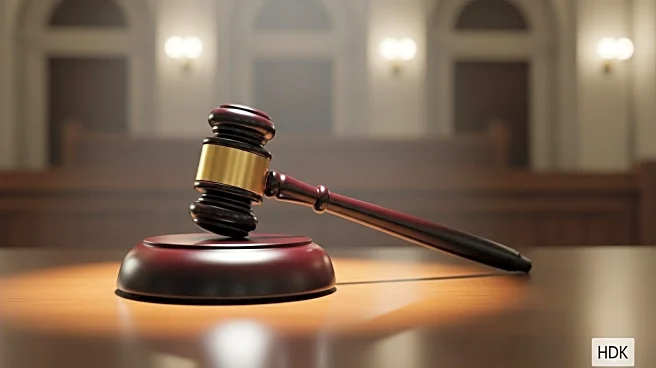What's Happening?
A federal judge has ruled that Kilmar Abrego Garcia, an alleged MS-13 gang member, should receive another court hearing after the U.S. Department of Justice (DOJ) likely engaged in a 'vindictive' human trafficking prosecution. The decision follows a motion from Garcia's lawyers presenting evidence of vindictiveness in the DOJ's actions. Garcia was deported to El Salvador but returned to the U.S. to face trafficking charges. The judge noted that the prosecution may stem from retaliation due to Garcia's successful challenge of his deportation.
Why It's Important?
This ruling highlights potential issues of prosecutorial misconduct and the impact of immigration policies under the Trump administration. The case could influence how the DOJ handles similar prosecutions and may lead to increased scrutiny of its practices. It also underscores the complexities of immigration law and the challenges faced by individuals contesting deportation. The decision may affect public perception of the DOJ and its approach to immigration-related cases, potentially leading to calls for reform.
What's Next?
Garcia's case will proceed with an additional hearing, which could result in further legal challenges and scrutiny of the DOJ's actions. The outcome may influence future cases involving alleged prosecutorial vindictiveness and impact the DOJ's approach to immigration prosecutions. Advocacy groups may use this case to push for changes in immigration policy and legal standards, potentially affecting broader immigration enforcement practices.
Beyond the Headlines
The case raises questions about the intersection of immigration law and criminal justice, particularly regarding the rights of individuals facing deportation. It highlights the potential for legal systems to be used as tools of retaliation, prompting discussions about the need for checks and balances in prosecutorial practices. Long-term, this case could contribute to shifts in legal standards and public attitudes towards immigration enforcement.










